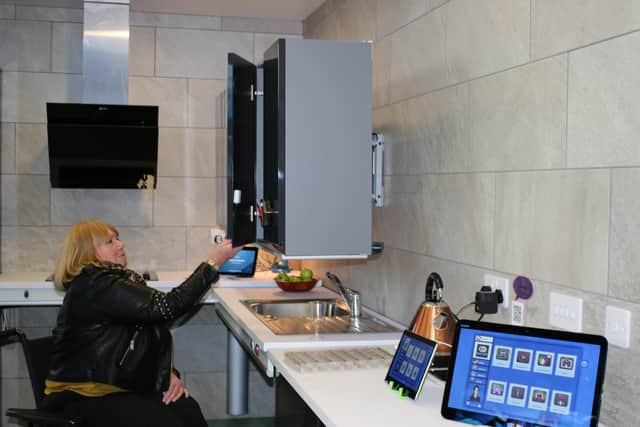Results from trial using smart technology to monitor care home residents over safety concerns to be released
and live on Freeview channel 276
“Smart meters”, currently being used by consenting residents, allow individuals and their loved ones or carers to set specific “rules”, telling the meter about which changes in routine are a cause for concern – such as shower time taking longer than usual, a resident getting up in the night or changes to normal cooking schedules – which could indicate that an incident has occurred.
Using artificial intelligence and machine learning algorithms, the meters can create a view of a resident’s daily routine and then spot unusual behaviour at which point it will alert the individual, their loved one or carer about the change in the resident’s movement.
Advertisement
Hide AdAdvertisement
Hide AdThe ongoing trial, which started in 2019 and has been delayed due to the pandemic, involves data from consenting residents’ smart meters and the findings are expected to be published in autumn later this year.


The aim of the new technology is to improve independent living in care homes and to provide an additional service to the traditional push button personal alarm worn by residents – particularly helping people with dementia who may be confused and forget to or be unable to activate their alarm.
The project, known as Smart Meters for Independent Living (SMILE), is being led by the University of Edinburgh’s School of Informatics, in partnership with housing and care specialist Blackwood Homes and Care, and Scottish Innovation Centre, The Data Lab.
Gillian Docherty, chief executive of The Data Lab, said: “Scotland has an aging population, and in the next few decades we need to find new ways to deliver the best possible social care against a backdrop of stretched resources and falling carer numbers. Machine learning and AI can be a non-invasive way to do this and will also encourage greater personalisation of care based on an individuals’ data.
Advertisement
Hide AdAdvertisement
Hide Ad“The SMILE project is funded as part of The Data Lab Collaborative Innovation programme and further strengthens the relationship between Blackwood Homes and The Data Lab, cementing the relationship for further support in terms of skills, network access and external funding support in the years ahead.
“We’re proud to be involved in such a forward-thinking project and look forward to receiving the initial findings soon. It is another fantastic example of data being used as a force for good.”
Dr Lynda Webb from the School of Informatics at The University of Edinburgh said: “It is very exciting to be working collaboratively with Blackwood Homes and the industry partners on this project.
"It provides an opportunity to apply the machine learning outputs from our previous EPSRC (Engineering and Physical Sciences Research Council) research project, IDEAL, in a new real world setting for social good.
Advertisement
Hide AdAdvertisement
Hide Ad"The fact that we are also co-designing the service with Blackwood customers means we can take forward the research in a way that is adapted to people's true needs.”
A message from the Editor:
Thank you for reading this article. We're more reliant on your support than ever as the shift in consumer habits brought about by Coronavirus impacts our advertisers.
If you haven't already, please consider supporting our trusted, fact-checked journalism by taking out a digital subscription.
Comment Guidelines
National World encourages reader discussion on our stories. User feedback, insights and back-and-forth exchanges add a rich layer of context to reporting. Please review our Community Guidelines before commenting.